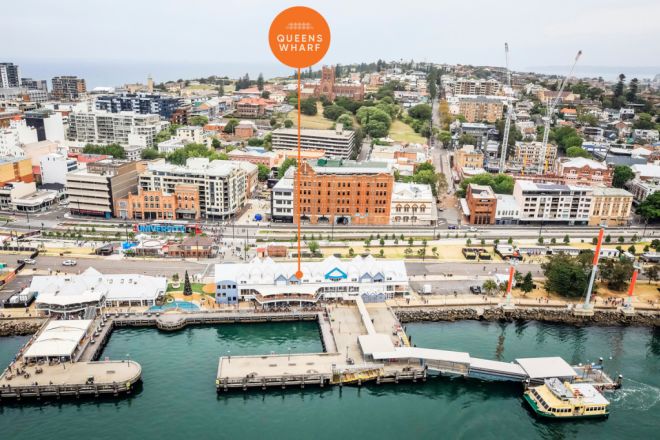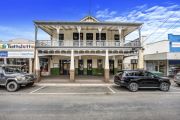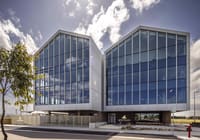
Rare chance to reimagine Newcastle’s iconic Queens Wharf
Newcastle’s landmark Queens Wharf, unveiled by Queen Elizabeth II in 1988, is on the cusp of a new era, with developers invited to shape the harbourfront into the city’s next prized waterfront destination.
The City of Newcastle is now calling for expressions of interest for the long-term leasehold opportunity for part of Lot 57 Wharf Road, Newcastle, on a 1204-square-metre site. Proposals are expected to reimagine the iconic precinct as a vibrant mixed-use waterfront destination, a project backed by overwhelming support following a community engagement period.
“It really does have an opportunity to put Newcastle on the map,” says listing agent Dane Crawford of Commercial Collective.
“Queens Wharf is synonymous with Newcastle … In its simplest form, it’s a place where you go and enjoy life – meet people, relax and live life.”
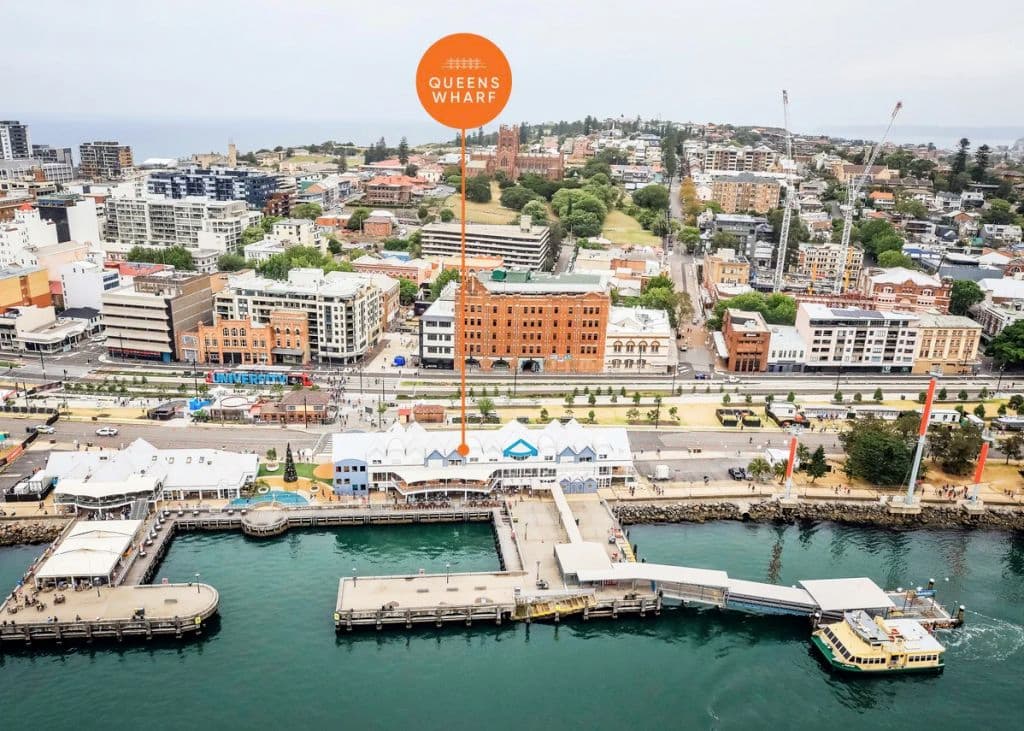
The redevelopment of Queens Wharf on the edge of the Hunter River includes two buildings, a public promenade and a ferry wharf in the heart of the city’s historic East End.
The revitalisation project – part of the city’s ongoing urban renewal – is an opportunity to take full advantage of the prime water’s edge setting. It is expected to deliver a precinct that sparks growth, engagement and innovation while respecting culture, economy and the environment.
The run-down precinct was first built to have a 25-year lifespan, as one of the nation’s Bicentennial projects to coincide with the late Queen’s royal tour. It included waterfront amenities such as an observation tower known as Queens Wharf Tower, a ferry wharf, a public promenade and hospitality spaces.
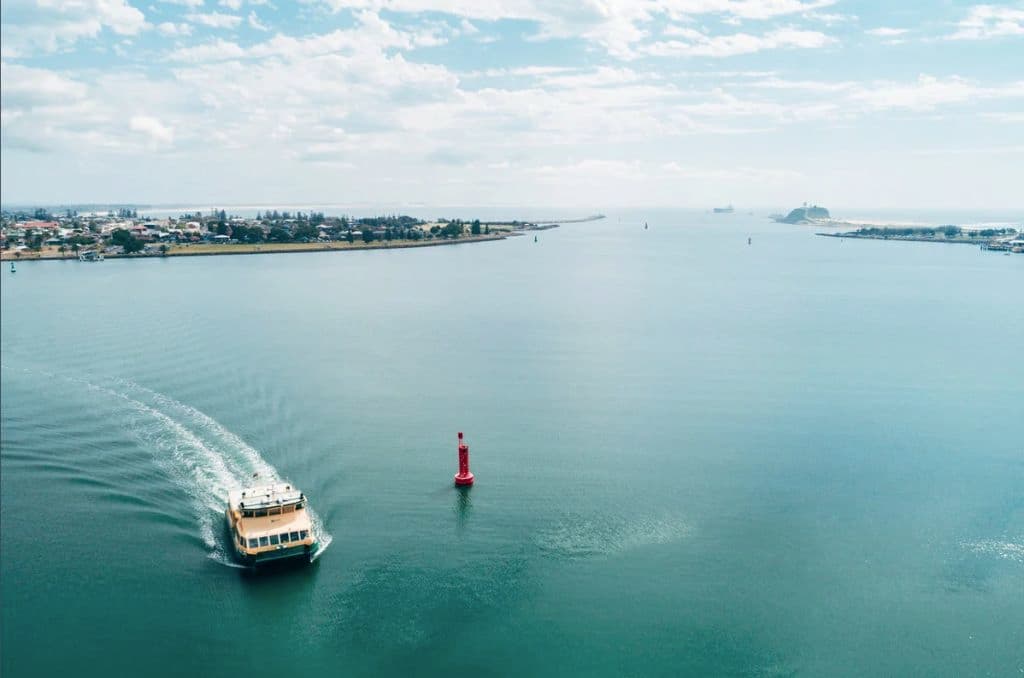
Nearly four decades on, the Queens Wharf harbourfront has outlived its expiry date, but the promenade is still accessible and “extremely active”, according to Crawford.
“Most of the buildings have been dormant for a period of time, left to rack and ruin. It’s only the Queens Wharf brewery that is currently still operational,” Crawford adds.
The demolition of a vacant and non-compliant building destroyed in a 2020 fire marks a vital first step in paving the way for a new era of waterfront activity, along with the revitalisation of the space where Queens Wharf Tower once stood. The phallic-shaped observation deck was reduced to rubble in 2018, ending decades of lewd jokes over its unfortunate shape.
“I think the shape of the tower was what most people probably made fun of, but that wasn’t necessarily why it got demolished. It formed part of an overarching revitalisation of Newcastle … sort of opening up the mouth of that waterfront from the mall, across that heavy rail over to the water,” says Crawford.

The council’s revitalisation project aims to reconnect the city with its waterfront and celebrate Newcastle’s identity as the capital of the Hunter region once again.
“We’re unlocking the future potential of Queens Wharf by reimagining the waterfront, reconnecting people with this iconic location, and linking the harbour to the city,” the council’s community engagement page details.
Neighbouring Queens Wharf Hotel – originally named Queens Wharf Brewery – does not form part of the redevelopment, and will continue to serve up frothies overlooking the harbour under its current lease until 2033.

Once home to dockyards and industrial buildings, Newcastle’s East End location has taken on an urban village feel, with cafes, boutiques, and high-end apartments steps from Newcastle Beach and harbour, all connected via the 2.7-kilometre Newcastle Light Rail.
The Hunter River, which winds through the Hunter Valley wine region, supports shipping and trade through the Port of Newcastle, one of the world’s largest coal export ports, connecting with destinations such as Japan, China and South Korea.

The redevelopment includes creating a new purpose-built office space for the ferry wharf, operated by Keolis Downer for Transport for NSW.
“The City of Newcastle is now inviting expressions of interest (EOI) from interested parties with the vision, experience, capability and capacity to deliver the project, meet City of Newcastle’s objectives and respond to community feedback,” the listing reads.
The redevelopment is part of a broader council strategy to reactivate the harbour foreshore and cement the area as a destination of choice for locals and visitors alike.
The original Queens Wharf project was the brainchild of Joy Cummings, who made history in 1974 as Australia’s first female lord mayor when she took office in Newcastle.
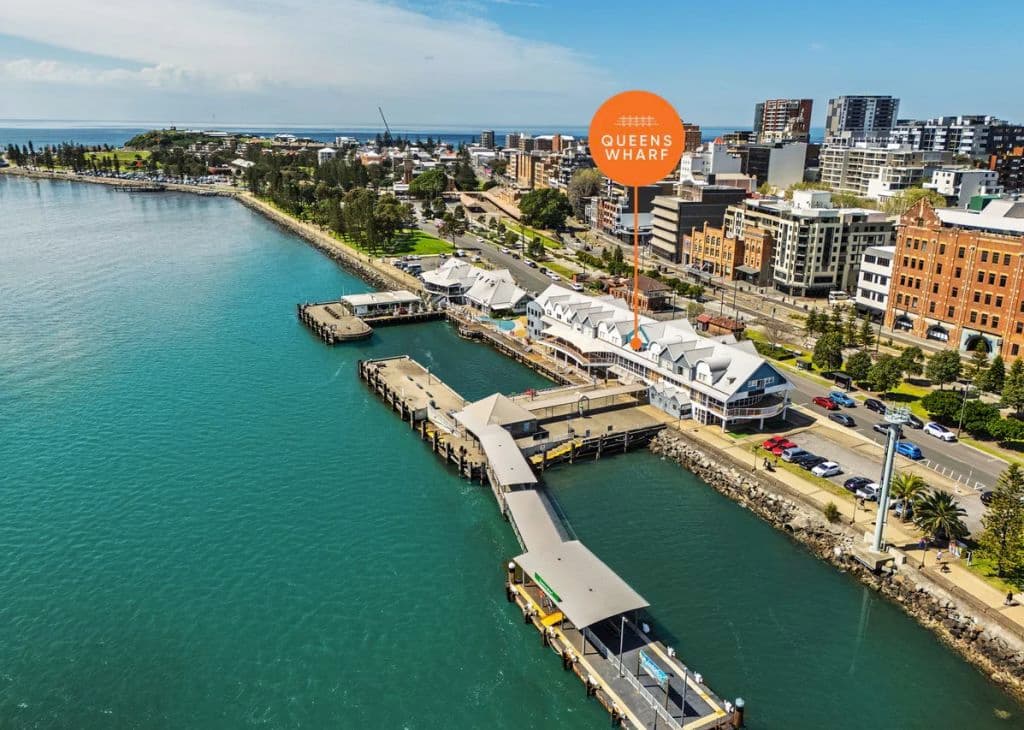
Newcastle is the largest regional city in NSW, and the seventh largest city in Australia, with a tourism arm that wants the project to rival San Francisco’s Fisherman’s Wharf.
“When you look at world-class precincts that sit on the harbour, where there’s wharves and ferries and boating, fishing … you look at where it’s been successfully done in the past. And if it can be replicated in Newcastle, I think that’s a good thing,” adds Crawford.
“I’m a local and I think Newcastle is the best place in the world to live.”
The Queen’s Wharf redevelopment opportunity is inviting parties to register expressions of interest at queens-wharf.com.au, closing on Friday, November 7.
